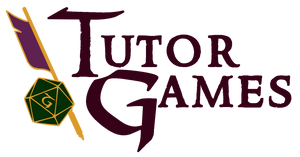
Board Games Aren't Just Good for Kids!
We all kinda just know that board games are good for kids, and assume that they are good for adults too. But what are the actual benefits of board games? How do they affect our mental state and our personal health? It’s hard to make games a stepping stone toward personal health with so little information on how they affect it. Time to get some tutelage on the mental strains in our lives, how they affect our health, and how board games might help.

Relatively recently the scientific community has been focusing on mental health and how it affects physical fitness. Mental health is influenced by our surroundings and how they make us feel. There are about four stages during life when our brains are extra sensitive to these feelings about our surroundings. Between ages 21-25 people are often ending adolescents and entering early adulthood. Some strains that arise during this time include
- Leaving home
- College responsibilities
- Beginning careers/military
- Social pressures to drink
- Desires to start a family and/or relationships
Without attention these strains can cause undue stress that can lead to anxiety and even depression. Unfortunately these prevent us from forming healthy habits and relationships, causing risky behavior, physical pain and other health issues.

During developmental stages, thinking cells in your brain, called neurons, make connections to activate larger areas of your brain in response to situations that happen around you.
These connections are known as synapses, and can be built up or torn down throughout life. These processes are called synaptic genesis and synaptic pruning.
Positive connections we form through board gaming, at ages 6-8, about sportsmanship, being secure with self, and exploration through play are nailed down as part of our mental health during synaptic genesis.
Continuing to practice social interaction through board games like The Captain is Dead: Lockdown strengthen the connections used for ideas about:
- Justice
- Logic
- Unity
- Cultural awareness
All hallmarks of a developing 6-8 year old. Strong connections help prevent pruning later in life.
Connections that are not often used are pruned, causing thinking cells to die. This means the actions we take are important all the way through life. During age 21-25 it is believed that a hyper pruning stage eliminates about 40% of the connections ,or synapses, in our brains before reverting back to normal pruning behavior.
Things we learn during adolescence could easily be lost such as
- Cause and effect/ abstract thinking
- Admitting errors
- Self evaluation and improvement
Board games are obvious sources of practice for these skills, which are developed during the early teens, especially via Two Player Games or games that work well with small groups.

Our brains are made of something called gray matter. This is the substance in the brain that contains thinking cells. Research has observed reductions in gray matter during periods of development and throughout life; even into adulthood.
The reductions are mainly in the Frontal and Parietal Cortices. These parts of our brains are in charge of
- Behavior
- Decision making
- Thought regulation
Multi-faceted stimuli like board games provide your brain with multiple strong connections that can transfer to dying cells when needed, and slow gray matter reduction. This also enhances our ability to learn as we grow older and develop healthy coping mechanisms for life's new stressors that will arise. This is called neural plasticity and is a strong defense against mental hardship.
Board games also avoid damaging over stimulation that can lead to hormonal imbalance and the pruning of useful cells. These two things can lead to reduced control of our thought lives, thus preventing us from focusing on healthy eating and personal fitness.

Our brains are complex organs and there is still much to learn. However, we do have some important conclusions.
Physical stimulus does affect our brains, and our brains affect our bodies.
Board games like Betrayal at House on The Hill provide many layers of stimulus such as
- Smell of the player books
- Texture of the cards
- Colors on the board
- The third dimension of the figures
- Spatial positioning of tiles
Its difficult to find all these mental benefits in a setting that also allows us to use our social skills, ideas of justice, and personal awareness. There is also the added benefit of the avoidance of over stimulation.
Your brain may be fully developed, but like everything else “if you don’t use it, you will lose it”. Board games are beneficial for adults just as much as children, but that doesn't mean you need to play childish games. Visit TutorGamesOnline.com and see what games are available to keep you mentally fit and entertained. Make an account to stay informed. Follow our blog and subscribe to our newsletter!

sOSmQgvqr
XDQszaHnYZ
iRUhdCnJmYFQK
tAkSxHjCFw
iNKZwBzvjqSb
iuTezSJyCgqB
tPcyaouM
KxlSipHaCuWJUNIB